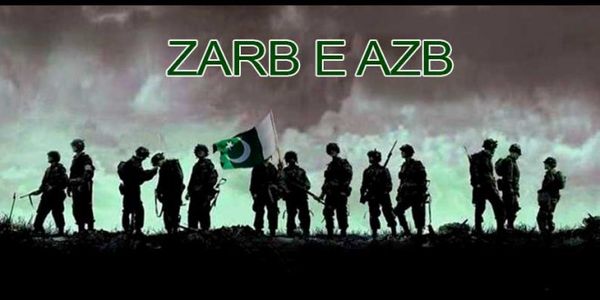Najam on Pakistan’s War Against Terror

Prof. Adil Najam, Dean of the Boston University Frederick S. Pardee School of Global Studies, believes that Pakistan is now firmly engaged in what will be its long war against terror; a war that the Pakistan military seems committed to but whose implications Pakistan society may not yet have fully recognized.
Najam made this argument in an Op-Ed published in Pakistan’s leading newsmonthly Herald (July 2015 issue) titled ‘Living With War.’ The Op-Ed was published on the the first year anniversary of Pakistan’s major military offensive against Taliban and other terrorist groups, code-named Zarb-e-Azb.
Najam points out that the Pakistan military has maintained very tight control on information about the operation, but
“there is little doubt that the operation has been conducted with great conviction, continues with determination and does indeed qualify as a military success. The Taliban are in disarray and on the run. The Pakistan military has demonstrated a willingness to fight to the end and maintains momentum.”
Najam points out that the operation that has led to the killing of 2,763 militants, 218 terrorist commanders and the destruction of 837 terrorist hideouts, has not been without costs to Pakistan. The most shocking was the terrorist attack on a school in Peshawar, in December 2014, that massacred 145 Pakistanis, including 132 schoolchildren. However, another result of the operation, according to Najam, has been an immense growth in the support for and prestige of the military, and “in the process, General Raheel Sharif [Pakistan’s Army Chief] has emerged as possibly the most admired – even adulated – military leader in Pakistan’s history.”
However, he goes on to write:
“Zarb-e-Azb was rightly described as an existential war for Pakistan. Yet, most of Pakistan has not treated it as such. For much of the year, Zarb-e-Azb did not even make the front pages of our newspapers. Most days, it did not make news at all. Even this anniversary sneaked up upon us, mostly as planted factoids. We seem content in letting it continue in the background as long as it does not distract us from other distractions.”
Najam concludes by arguing that a society that has not recognized that it is now in the midst of what will inevitably be a long war will have to confront that reality and the toughest questions that it needs to ask itself “remain unanswered – nay, unasked.”
Read more about Dean Adil Najam here.